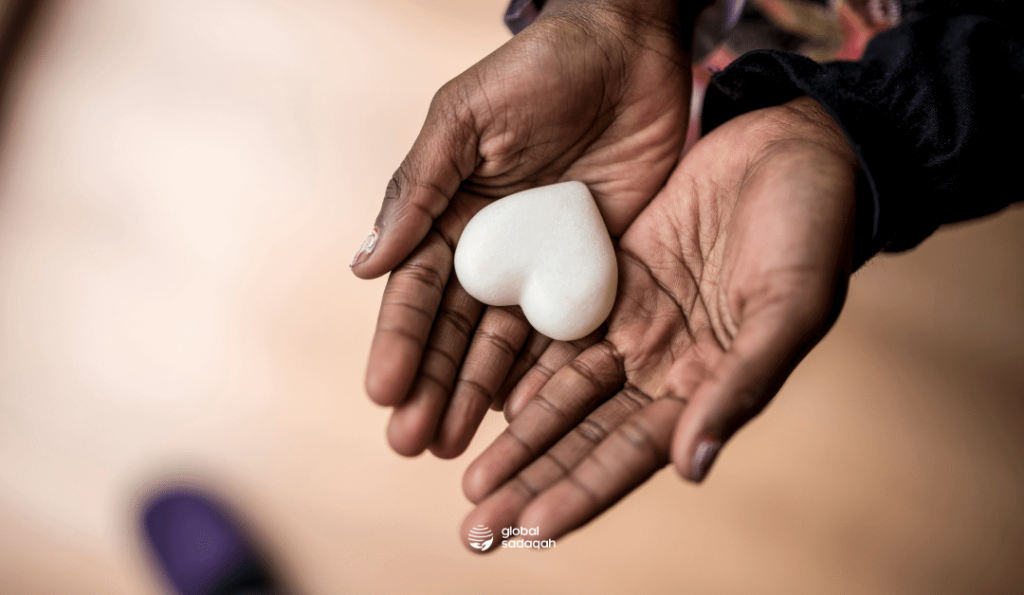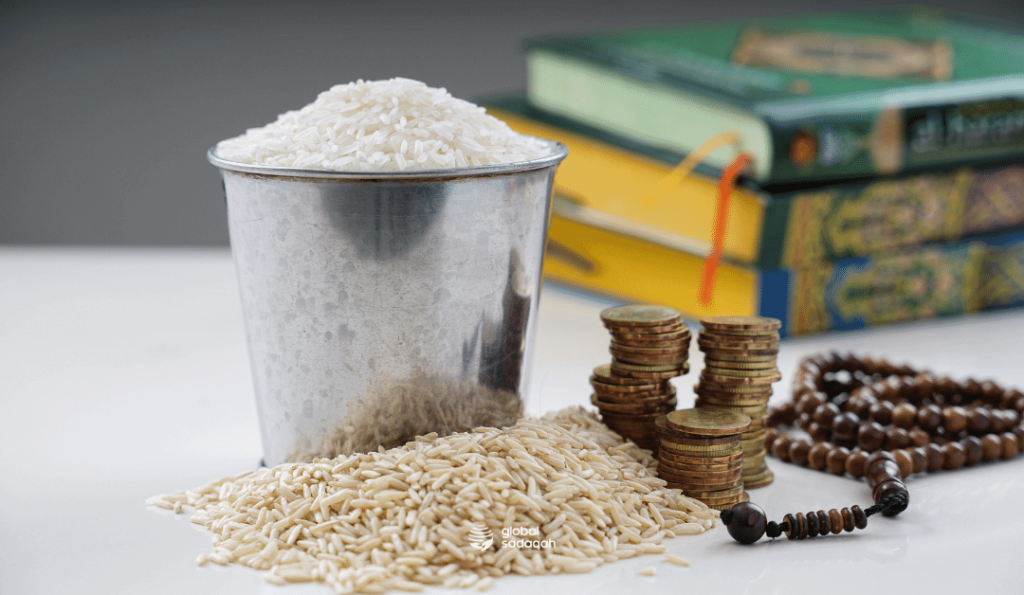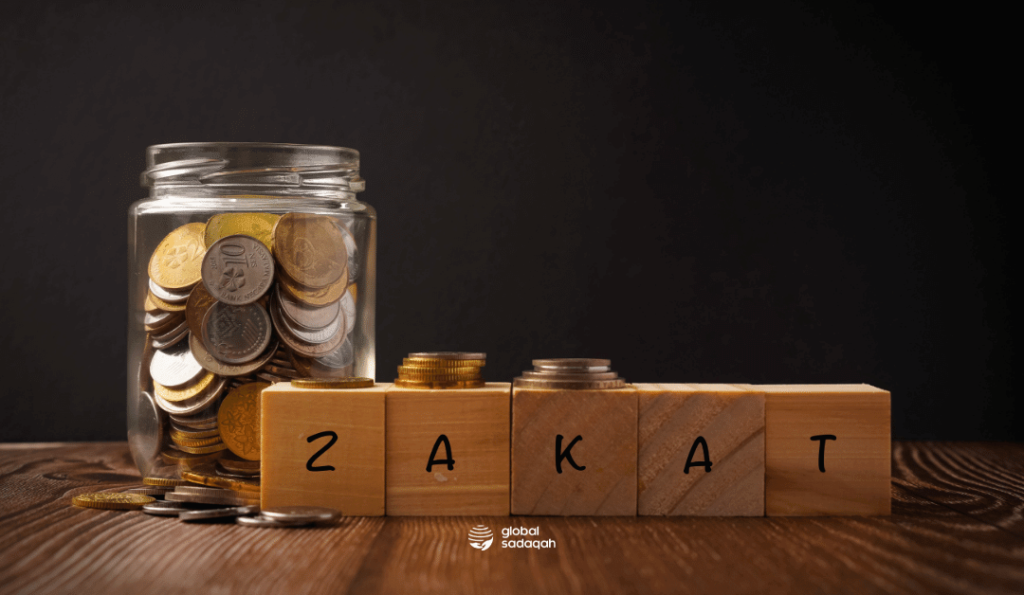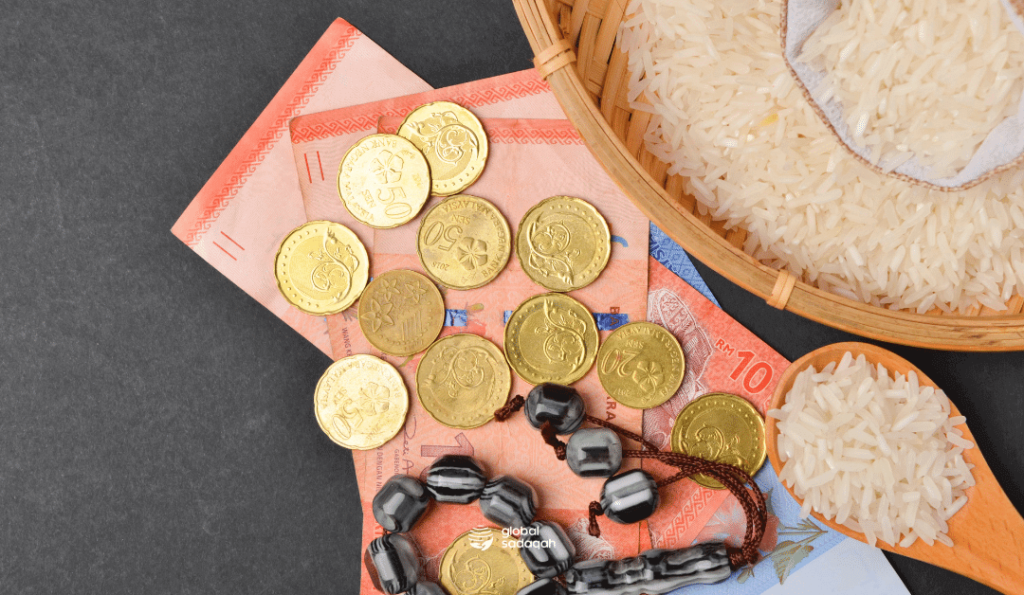If you’re a Muslim, you probably know about Zakat, one of the five pillars of Islam. You may have even given Zakat previously if you’re eligible. And if you give Zakat regularly every year, chances are you’ve always given it as cash money.
Most people give Zakat in cash, but if you have ever wondered whether you could give Zakat as items such as crops, food, cattle, or anything else other than cash, you’re in the right place! In this article, we discuss if items can be given instead of cash for Zakat and the relevant rulings from scholars of Islam.
What is Zakat?
Zakat is one of the essential five pillars of Islam. It is obligatory upon Muslims owning and exceeding the Nisab (the minimum amount of wealth you need to own to be qualified to pay zakah) to pay a minimum of 2.5% of their total wealth as Zakat to people who qualify as recipients according to the Shari’a.
There are specific categories of assets that are considered to count towards the Nisab amount, such as cash, livestock, precious metals like gold and silver, real estate, etc. Zakat is paid annually as long as the person has owned wealth exceeding the Nisab amount in the previous Islamic calendar year. The Nisab amount varies according to the category of wealth.
Zakat, being obligatory for those who qualify as donors, is practically a system of social equity that ensures that the gap between the rich and the poor is lessened in society. It predetermines the donors and the recipients in order to ensure a fair redistribution of wealth.
Zakat is also a means for Muslims to purify and cleanse their wealth and increase the barakah (blessing) of Allah in their affairs. It enables the forgiveness of one’s sins and the increase in one’s Rizq (sustenance). Additionally, it instils a sense of brotherhood among the Ummah as Allah SWT mentions in the Qur’an: “But (even so), if they repent, establish regular prayers, and give their zakat, they are your brethren in Faith.” [Sūrah Al-Taubah, 9:11].

The following group of people has been determined by the Shari’a to be eligible to receive Zakat:
- The poor who are unable to ask others for help out of dignity
- The needy who resort to begging
- People who are responsible for distributing zakat
- People in captivity and slavery
- People who are in massive amounts of debt
- People who fight for the sake of Allah
- Travelers who are stranded or struggling in foreign lands
- People who recently reverted to Islam
Who should give Zakat?
As for who should pay Zakat, the person who meets the following conditions is obligated to pay Zakat:
- Muslim
- Free (Not enslaved)
- In control of your own wealth
- Has reached the minimum threshold for Zakat
- A full lunar year has passed over the Zakatable wealth
Can you give items instead of cash as Zakat?

As per the Shariah, it is required that a person gives Zakat on one’s wealth in the form of money. It is not permissible to be given in the form of various items etc. The person gives Zakat to the eligible beneficiaries and their involvement with the money is complete. They have transferred the trust in their care to its rightful owner. Now, the person has absolutely no right to dictate to the beneficiary how the money is to be utilised.
Sheikh Ibn al-Uthaymeen said, “Zakat on money must be given in cash; it cannot be given in the form of other items, unless the poor person made a request of you and said: If you receive money for me, then buy me such and such with it. In that case, there is nothing wrong with it.” [Majmu’ Fataawa wa Rasaa’il Ibn Uthaymeen]
This is the general rule. But if it is known for sure that the money will not be utilised in the proper manner or the person is incapable of using the money in the proper manner, then we can explore the permissibility of giving items instead of money as Zakat.
Sheikh al-Islam Ibn Taymiyyah said: “Giving items of equivalent value when there is no need and no obvious interest to be served is not allowed… Because if it were made permissible to give items of equivalent value, then the giver may give bad quality items or the evaluation may not be correct. Zakat is intended to help the poor, and the zakat is connected to the amount of wealth one owns and its type. However, with regard to giving items of equivalent value when there is a need for that or an interest to be served thereby, or to achieve fairness, there is nothing wrong with that.” [Majmu‘ al-Fataawa]
In such a scenario, it is good to bring the person along with you when buying for them or buy on their behalf that which they need. Many charity bodies need to remember that this is the exception to the rule and not the rule itself.
How can Global Sadaqah help you pay Zakat?

We at GlobalSadaqah firmly believe that in order to build an equitable and just society, we must establish and grow a culture of kindness, equality, and fairness through the practice of Zakat. To attain this dream, we have established an award-winning platform that makes giving Zakat and charity easy, straightforward, and time-efficient.
We work with religious bodies, foundations, banks, corporates, and the public to uphold the highest accountability and safety in your donations towards different Zakat-eligible campaigns. Our featured campaigns are verified and approved by our in-house Shari’ah team consisting of scholars and experts to ensure that your Zakat and charity are sent to trusted and eligible candidates. With just a few clicks, you can now easily ensure that your Zakat reaches the right beneficiaries. To donate to our campaigns via easy and simple steps, please click here.

